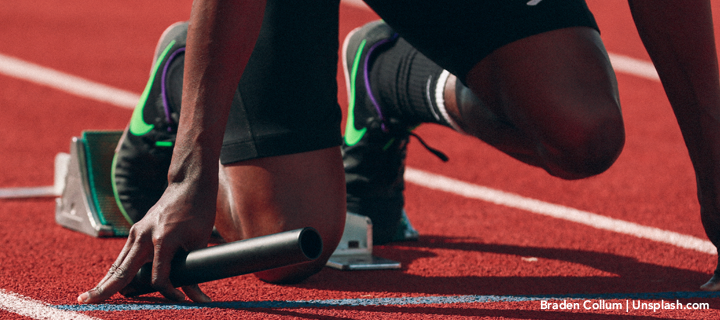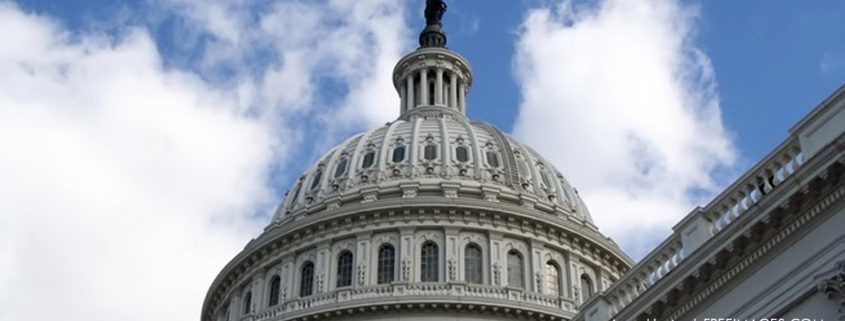No Pressure. No Diamonds.
By Geoff Heppes, Sports Blogger
The famous slogan “no pressure, no diamonds,” made popular by former Baylor and Washington Redskins quarterback (now currently with the Cleveland Browns), Robert Griffin III, describes how athletes cannot achieve greatness and be true champions without enduring some hard pressure. This idea definitely applies to arguably the two best Olympic athletes out of the staggering 555 that the United States sent out in swimmer Michael Phelps and gymnast Simone Biles.
First, Phelps, 31, is the most decorated Olympic athlete of all time, and possesses the most gold medals by any Olympic athlete in Olympic history. Phelps is the proud owner of 23 medals overall with 19 of them gold…currently. Currently because he will likely add to both of these large totals. While American golden boy Phelps carried out the flag leading the Americans into the Olympics, has a beautiful fiancé and child and seems very well put together overall, his past is sad and troubling.
After hauling in eight gold medals in a sweep of every event he swam in the 2008 Beijing Olympic Games, Phelps thought about walking away from swimming completely; this lead to Phelps losing his purpose in life. Phelps had a meltdown and since then accumulated two DUI offenses, used marijuana, still had not spoken to his father since he was nine years old and thought about taking his life. Then, a special friend came along and spoke to Phelps.
After talking to close friend and soon to be Hall-of-Fame Ravens linebacker, Ray Lewis (also an amazing motivational speaker and Christ-follower), Phelps turned his life around. Phelps checked into rehab and spent 45 days there and cleansed himself of temptations of marijuana and alcohol abuse. Phelps later recommitted himself to Jesus, and he also spoke to his dad and mended that relationship after decades of tension. Phelps is now swimming again for gold medals in Rio and looking better than ever.
Biles, 19, is probably the best gymnast in the world with former American Olympic great, Nastia Liukin, calling her “untouchable.” Biles most recently won gold for best female all-around gymnast, and is favored to take home up to five gold medals. Biles has competed with great power, serene grace and elite poise, but her haunting past is hard to deal with.
Biles biological mother, Shannon Biles, 44, gave Simone up for adoption when she was six years old due to Shannon’s addiction to drug and alcohol abuse. Simone and her younger sister, Adria, were put into foster care in Ohio until they were adopted by Shannon’s biological parents, Simone and Adria’s grandparents, Ronald and Nellie Biles. Simone refers to Ronald and Nellie as her parents.
Simone now has a more open dialogue with her mother, as she has been sober since 2007, and both her and her former struggling as well father, Kelvin Clemons, both are incredibly proud of their accomplished biological daughter, and have tremendous respect for Ronald and Nellie and how well they have raised Simone and Adria.
Both Phelps and Biles have overcome a tremendous amount of adversity in their lives, and are brave enough to let the world know about it; their challenges they have overcome have made them stronger than they ever could have been without it. With great support systems, hard work and dedication to their respective sports and a little pressure, these two elite athletes are true diamonds, gold diamonds might I add.
“…because I am determined.”
We’re only three days in to the Olympics and every morning is like a holiday gift waiting to be ripped open! Running. Rowing. Cycling. Volleyball. Swimming. Gymnastics. Where do we start? There’s simply no end to the athleticism on display in each new Olympic hopeful and returning competitor.
And while we’re off to a great start (as of writing this blog, the U.S. is leading with 19 medals), there have also been some horrible accidents. Sunday took a turn for the worse when a scary crash took out leader Annemiek van Vlueten of Netherlands in the final stages of the women’s cycling road race. And then there’s the head-turning, face-cringing, scream-out-loud moment when French gymnast Samir Ait Said broke his leg on impact when vaulting during the men’s team qualifications.
From her hospital bed yesterday, Van Vleuten tweeted, “I’ll be fine,” adding, “most of all super disappointed after best race of my career.” And what about Said? In an act of complete resolve he said in an interview, “I knew instantly that it was over. I need to accept it. So immediately, I thought about the Olympic Games in Tokyo. Not to keep hope, but because I am determined.”
“Because I am determined.” Just let those words simmer in your mind for a minute.
The man just broke his leg on the world’s stage doing what he has done thousands of times before. I can think of 313 million reasons (number of current Twitter users) why I would NEVER jump on that vault. Yet, there he is. Planning for his next Olympic Games.
It’s true that everyone’s fitness is a journey and not a destination. And that means that at some point in our journey – like Said and van Vlueten, we’re going to fall down (hard) and get hurt. We’re going to gain the weight back that we lost. We’re going to miss a few workouts. We’re going to get injured.
Disappointment, however is not an obstacle, it’s an opportunity. The late boxing legend Muhammad Ali said of his own struggles, “I hated every minute of training. But I said, don’t quit. Suffer now and live the rest of your life as a champion.” And that is what determination is. It’s doing what needs to be done, even when you don’t feel like doing it. It’s planning for the next Olympic Games from your hospital bed.
If you’re discouraged with your fitness goals, welcome to the club. You’re certainly not alone. But this is not your season to give up. Please give us a call – our Life Development team can help you stay resolute in your fitness goals. Because a healthier you, can be a happier you.
The Heart of an Olympian
In just a few short days the 2016 Olympic Games in Rio will begin! Athletes from around the world will take the field in their quest for the ultimate reward – the Olympic gold medal.
Their performances will seem effortless. For some, their competitions will only last a few minutes. But their preparation and training has taken a lifetime. It will be 3 weeks of high intensity, awe-inspiring athletic performance.
But for some us, it may also be a time of pause and reflection. A time we look at these amazing athletes from the comfort of our Laz-E-Boy recliner with our bowl full of ice cream and wonder, “wouldn’t it be great to be that amazing?”
Well, let’s find out! This month, let’s channel the hopes and dreams of each Olympic hopeful into our own lives. Why? Because being active is not only good for our physical health, but our mental health as well!
Research has shown over and over again that physical exercise has enormous mental health benefits. Addictions can be replaced with a goal to finish a marathon. Anxiety can be channeled into a rigorous exercise routine. Depression can be offset with a supportive partner, coach or training group.
Finding motivation to get moving eludes even the best of us. But we don’t have to have the same schedule or resources as an Olympian to achieve incredible fitness success. We just have to have the heart of an Olympian.
Ready to change? Let the Olympic spirit fuel that readiness. Here are a few steps to get inspired:
- TEAM UP– We don’t have to be alone in our efforts to get healthy. Find a fitness partner who shares your goals. There are running groups, cross training teams, rock climbing gyms and city leagues with all kinds of opportunities to get moving. There really can be strength in numbers.
- REMEMBER – It can be so hard to get up at 6 am for that early morning run. But if you remember how amazing it feels when you’ve finished, you’ll be more likely to get up and get moving. This is true with any kind of physical exercise. The power of positive thinking is underrated.
- BE INSPIRED – Simone Biles. Michael Phelps. Usain Bolt. Agile. Fluid. Fast. Find someone who inspires you; someone who’s already doing what you want to do better. There are endless sources of inspiration that you can lean on when getting off the couch seems impossible.
If you need help getting a physical routine started, give us a call. We have an excellent Life Development team who can help you set and achieve your fitness goals.
Give me liberty, or give me death.
I don’t know if there’s a more fervent statement in our nation’s history than Patrick Henry’s impassioned declaration at the 1775 Virginia Convention, when he asserted: “Give me liberty, or give me death!”
Don’t get me wrong. I’m not saying our country’s liberty was that easy to win. Henry didn’t just say it and “POOF!” we’re free! Oh no. King George III wasn’t about to hand over his “new world” to the colonists. It took strength, bravery, resolve and courage for the early colonists to fight for liberty. It took making a stand and then acting on it.
Our country’s liberty and the courage of those early Americans has so many parallels to our addictions. That’s because there’s a common thread with freedom – sometimes, you just have to fight for it.
Freedom from addiction is worth the cost, the risk, the challenge to achieve a life liberated from harmful behavior. The road to liberty is not easy – but once you make the first move, we promise, you won’t regret it. Here are some steps that you can take to get started:
DECLARE YOUR INDEPENDENCE – In 1776 the Continental Congress declared that the original 13 colonials were done with the British Empire. British rule (like an addiction) was just too much of a burden. So just like Patrick Henry, you have to say it out loud. You have to say it with resolution. Whether its drugs and alcohol, pornography or shop lifting, admitting that “enough is enough” is the first step in declaring your independence from addiction.
ASK FOR HELP – The colonists didn’t fight for their freedom alone. Independence was a battle that was too big for their scant resources and experience. They brought in allies, like the French, to help them be strategic in their approach. Our team is your ally. We can help you defeat your addiction, and through our Life Development program, help you achieve enduring freedom from destructive habits.
FIGHT, FIGHT, FIGHT – The colonists wanted their independence more than the British wanted their afternoon tea. They didn’t win every battle. But because they kept fighting, they won the war. Fighting addiction can be a long, engaging war. It can feel overwhelming on a day-to-day basis. Don’t give up. FIGHT for it!
CELEBRATE YOUR WINS – Fireworks. Picnics. Hot Dogs. Hamburgers. Family. Close friends. July 4th is a day of celebration. Every win over an addiction deserves a celebration. Maybe you resisted the urge to drink at the party. Maybe you decided to turn off the computer rather than look at porn. Celebrate those wins. Tell someone who knows you’re struggling that you won today. Share your successes and revel in them – those celebrations will become the motivation that pushes you through the next time your addiction resurfaces.
Today is the day to declare your independence from addiction. And we can help you stand resolute in that declaration. Please call us if you’re struggling with addiction. We’ve seen and heard it all. You won’t embarrass us. You won’t offend us. You won’t surprise us. We can help. Please call us today.
#JoinTheConversation
This month we celebrate our nation’s independence. But, did you know that nearly 20% of our population is struggling with their individual freedom from mental illness?
The National Institutes of Health (NIH) reported that nearly 1 in 5 adults in the U.S. (43.8 million) experience mental illness in a given yearref. Despite the impact it has on our country, the topic has often been ignored or brushed aside. That is until events over the last several years have put mental illness in the spotlight.
Turn on any evening news program (or just scroll through your Facebook or Twitter Newsfeed) and you’ll see the controversy swirling around mental health. From gun control and terrorism to hate crimes, mental illness has become a mainstream conversation. Finally.
The importance of mental health has even caught up to the federal government (again). There’s been some “across-the-aisle” collaboration in the House of Representatives in the form of the Helping Families in Mental Health Crisis Act of 2015 (H.R. 2464).
Rep. Tim Murphy of Pennsylvania, who sponsored the bill (also known as the Murphy Bill), outlined how he hopes H.R. 2646 will help fix the nation’s broken mental health system. Here are a few goals of the bill:
- Empower parents and caregivers: Break down barriers for families to work with doctors and mental health professionals and be meaningful partners in the front line care delivery team
- Drive evidence-based care: Creates an Assistant Sec. for Mental Health and Substance Abuse Disorders…to elevate the importance of mental health
- Drive innovation: Drive innovative models of care, develop evidence-based and peer-review standards for grant programs
- Improve transition of care: Require psychiatric hospitals to establish clear and effective discharge planning to ensure a timely and smooth transition from hospital to appropriate post-hospital care and services.
- Alternates to Institutionalization: Incentivize states to provide community-based alternatives to institutionalization for those with serious mental illness, such as Assisted Outpatient Treatment and other assertive-care community approaches
Of course H.R. 2646 is more extensive than this. (You can read Murphy’s full memo here or the actual bill here). But it passed out of the House of Representatives on July 6th with an impressive 422-2 vote. It goes up to Senate for next consideration.
While this month gives us a reason to celebrate our country’s independence – it’s also a great time to reflect on the work that’s still ahead of us to provide some freedom to those who struggle with mental health challenges. This bill, current events and increasing news coverage is making it possible to openly discuss mental health issues without fault. It’s certainly worth our efforts to #JoinTheConversation.
#QuarterLifeCrisis
#Adulting
#FirstWorldProblems
#Millennial
If you follow anyone in their mid- to late-20s on Twitter and Instagram, you might be familiar with these hashtags. As young adults leave college and enter the so called “real world,” certain problems become a trending topic, from having their name spelled incorrectly on their Starbucks cup to figuring out how to do taxes and pay off student loans.
Often, this period of time is referred to as a Quarter Life Crisis. Similar to a mid-life crisis, the Quarter Life Crisis is a period of young adulthood in which 20-somethings struggle with their new found independence. Unemployment, job satisfaction issues and trouble in friendships and romantic relationships can all add a lot of stress to a person, especially when it all comes down on them at once.
People have often joked about the struggles of millennials, claiming them to be insignificant and selfish, and sometimes they are. However, many times these issues can cause feelings of insecurity, restlessness, depression, anxiety, loneliness and uncertainty – feelings that shouldn’t be overlooked. Instead of seeking help, these young adults might wallow and end up harming relationships with their families, spouses, friends and coworkers.
July is a month of celebration. Of independence. Of Freedom. For those emerging adults who are struggling to find their independence, our team can help. Because early adulthood can be an overwhelming time in life, we work with the whole family to help develop healthy routines, tangible goals and behaviors, and a broader understanding of the emotions associated with this season. We offer young adults and parents a new approach for this phase of life so that families can flourish.
Summer College Program for Emerging Adults
This summer we’re offering two summer college programs, one for young adults and another for parents. Our programs are not “therapy” in a traditional sense. They’re really more educational. We focus on expectations and developing plans and strategies to successfully navigate your student’s transition into and through their college years.
We offer a 2 ½-day program that walks through the fundamentals of adjusting to college – and managing the independence that college offers maturing young adults. If you or someone you know is struggling with emerging adulthood – whether they call it a Quarter Life Crisis, anxiety, confusion, etc. – please contact i360 today. You can reach us in Dallas at (214) 733-9565, or in Austin at (512) 710-5533.






